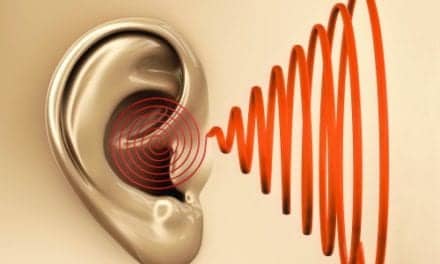
Siemens has also developed an infographic with key statistics and some suggestions for preventing hearing loss in teens.
According to a recent study commissioned by Siemens Hearing Instruments, Piscataway, NJ, teen hearing loss may be on the rise, with 1 in 6 teens showing hearing loss symptoms often or all of the time and nearly 9 in 10 engaged inactivities that could place them at risk for hearing loss.
The US survey of 500 teenagers ages 13–19 found that 46% reported experiencing ringing, roaring, buzzing or pain in their ears after engaging in risky hearing practices, including listening to excessively loud music and using lawn and power tools with no hearing protection. One in 6 teens admitted having these symptoms often or all the time. The nationwide survey was conducted by ReRez Research, Dallas.
The findings also revealed that teens are aware of the risks, yet still choose not to protect their hearing. Nearly 9 in 10 (88%) of teens admit participating in activities they know may damage their hearing, with listening to loud music being the most popular. When asked what their parents or teachers would do if they knew how loud their music was, 78% of teens confessed they would tell them to lower the volume or wear protective gear.
“Music has always played a central role in teens’ lives, but over the past decade, the ever-present earbuds attached to popular smartphones and portable music players have caused increasing concern among hearing care professionals,” said Charles Kuratko, vice president of business management at Siemens Hearing Instruments. “When combined with other potentially damaging sound environments (power tools, concerts, etc), the potential for future hearing loss is greater than it has ever been. The good news is teenagers can protect their hearing with a few simple steps.”
To mitigate the risks of noise-induced hearing loss (NIHL), Siemens recommends the following:
- Prevention: The best way to deal with NIHL is to stop it before it happens. Buying headphones instead of earbuds keeps some of the direct sound out of teens’ ears. Ear protection should always be used in loud environments like concerts, sporting events and when operating power equipment.
- Stop future damage: If teens do experience symptoms like ringing or buzzing in their ears, they should immediately turn down the volume, wear ear protection, or see a hearing care professional.
- Move to the middle: When going to a concert or club, sitting in the middle of the room helps reduce noise exposure.
- Help a friend: Teens should warn one another if they’re putting their hearing at risk. If you can hear your neighbor’s music over the headphones, it’s too loud.
- Custom ear protection: Custom-molded musician’s earplugs and high-decibel earplugs are recommended for teens who play in bands or are frequently in loud environments.
More detailed information on the survey can be found at: http://usa.siemens.com/teenhearing. Siemens also developed an infographic with key statistics and some suggestions for preventing hearing loss in teens.





